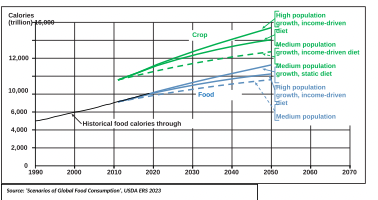Introduction to Digital Supply Chain Management
- Harshini Naidu
- Jun 27, 2022
- 3 min read
All facets of business, including supply chains, have been impacted by digitisation. Embedded sensors, GPS, and RFID have all assisted organisations in transforming their traditional supply chain structures (a mix of paper-based and IT-supported operations) into more agile, adaptable, open, and collaborative digital models.
A digital supply chain is one that is constructed on the foundation of web-enabled capabilities. In many supply chains, paper-based and IT-enabled procedures coexist. A real digital supply chain goes well beyond this hybrid paradigm, using interconnectivity, system integration, and the data-generating capabilities of "smart" components. In supply chain management, digital transformation allows organisational flexibility, and business process automation, and accelerates innovation. It is vital that companies make digital supply chain models an intrinsic part of their overall business model and organisational structure in order to get the most out of them.
Processes in a digital supply chain track real-time inventory levels, consumer interactions with commodities, carrier locations, and equipment, and use this data to assist plan and execution at higher levels of competence. In a digital supply chain, technologies like GPS tracking, radio frequency identification (RFID), barcodes, smart labels, location-based data, and wireless sensor networks play a significant role. Furthermore, cloud technologies combined with Web services can unify information and processes, allowing parties involved to see each other and collaborate more effectively.
The ultimate goal of the digital supply chain is to provide insights that lead to better efficiencies, reduced waste, and increased revenues. Companies that have a digital supply chain are better equipped to move resources, assets, people, and inventory to where they are needed at any given time, lowering costs by anticipating transportation and manufacturing risks. Savings in every area, from resources, time, and money to a smaller environmental footprint, are all possible payoffs of a fully realised digital supply chain.

There's no doubt that businesses are willing to move away from the traditional supply chain management model in order to boost agility, efficiency, and visibility. Building a digital supply chain necessitates a complete strategy that incorporates the organisational structure, operations, systems, physical assets, and procurement and payment processes as a core aspect of the company's strategy.
In supply chain management, digitisation allows your planning, sourcing, and logistics teams to collaborate, automate, and use analytics more efficiently. It is said to promote growth, reduce risk, and reduce costs. You will be able to make faster and more informed decisions for each function once your supply chain has been integrated with digital technologies. Furthermore, by aggregating transactions and relevant information at the macro level, you may reliably and effectively monitor performance and make necessary decisions.
Organisations are rethinking how they do business in light of the rapidly changing technical landscape and rising customer expectations. Integrating digital technologies into the supply chain can increase efficiency, flexibility, and resilience. One of the most effective and safest methods to develop a resilient organisation today is through digital transformation in the supply chain.
If you have been wondering how a Digital Supply Chain Management system can help you scale up the supply chain, check our customer success case studies to see how companies have benefited from it and how your organisation can do it too. The road of digitalisation is expected to pave the way for tech-driven risk management with the help of opsPhlo & finPhlo in commodity and international trading as well.
If you are waiting to find the right tool to help you digitalise your supply chain, reach out to us at opsPhlo to know how you can do it.















Comments